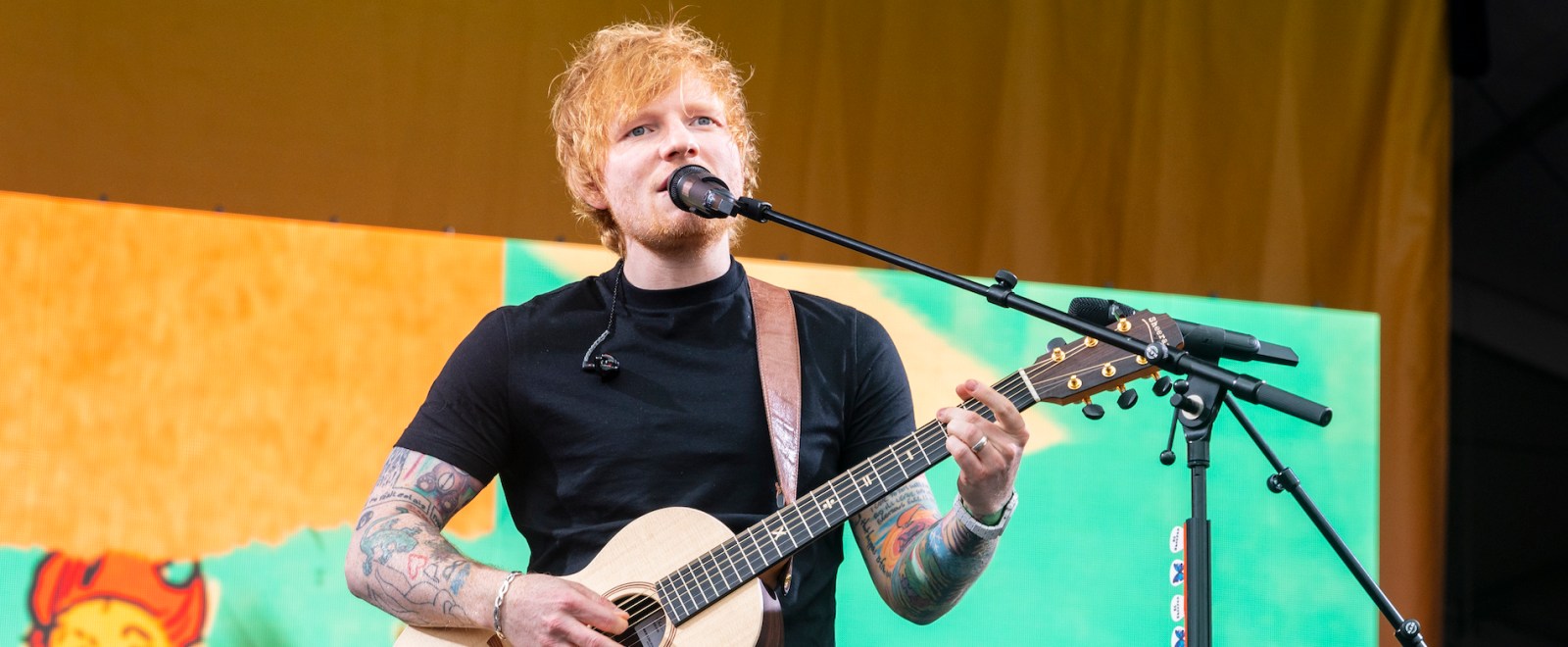
Ed Sheeran left court today with a weight off his shoulders. A jury found Sheeran not guilty of copyright infringement in a lawsuit brought by the estate of Ed Townsend claiming that Sheeran’s 2014 song “Thinking Out Loud” copied parts of Marvin Gaye’s 1973 classic “Let’s Get It On,” which Townsend co-wrote. Sheeran said he was “very happy” by the decision but “absolutely frustrated” by the fact he had to go to court in the first place, especially because he missed his grandmother’s funeral as a result.
Before the trial, he echoed that sentiment in an interview with Apple Music, telling Zane Lowe, “The thing with these cases, it’s not usually songwriters that are suing songwriters. I feel like in the songwriting community, everyone sort of knows that there’s four chords primarily that are used and there’s eight notes. And we work with what we’ve got, with doing that.”
He isn’t wrong; according to copyright expert Naima Cochrane, the rights to “Let’s Get It On” are owned by Structured Asset Sales, which acquired a portion of Townsend’s estate, and when it filed the initial lawsuit in 2018, it was actually stuck down by a judge. SAS then acquired a live recording of “Let’s Get It On” and refiled the suit against that version.
This is why I’ve said this case was a farce from the door; not just because it’s not a thing they can claim was unique to Let’s Get it On, but because of WHO brought the suit and how – especially the fact that the suit couldn’t stand on original composition. pic.twitter.com/eQ0zMFr7yq
— Naima Cochrane (@naima) May 4, 2023
The suit was filed by a company called Structured Asset Sales. https://t.co/tSROxWk3V7 pic.twitter.com/08AeCfnORG
— Naima Cochrane (@naima) May 4, 2023
However, as both Cochrane and Sheeran have both pointed out, SAS’s claim was dubious from the beginning; here’s a clip that’s been circulating on TikTok pointing out why many songs can “sound” similar to each other using the “four chords” principle cited by Sheeran above:
The reason such lawsuits have become more commonplace in recent years is partially because of Marvin Gaye as well. In 2013, Gaye’s estate — which is still administered by his family — issued a copyright claim against Pharrell Williams and Robin Thicke over their 2013 single “Blurred Lines,” citing its similarity to Gaye’s 1977 hit “Got To Give It Up.” When Pharrell and Thicke sued for a declaratory judgment that it did not infringe on the copyright, the case went to court, and ultimately, they were ordered to pay over $7 million in damages. An appeal upheld the decision in 2018, which many believe opened the door for similar lawsuits based on similar “feel” rather that duplicated compositions.
In Sheeran’s case, the suggestion that he’d copied Gaye and Townsend’s work irked him to the point of saying he’d quit music if found guilty. Fortunately for his fans (and his label, which is releasing his fifth album, – [Subtract], this week), he wasn’t, despite SAS bringing in a musicologist — whose testimony Sheeran refuted by playing his guitar on the stand.
This likely won’t be the end of such cases, but this case does demonstrate how easy it is for rights administrators to bring lawsuits against artists, and shows how better protections are needed on both sides to ensure fairness in future proceedings.
